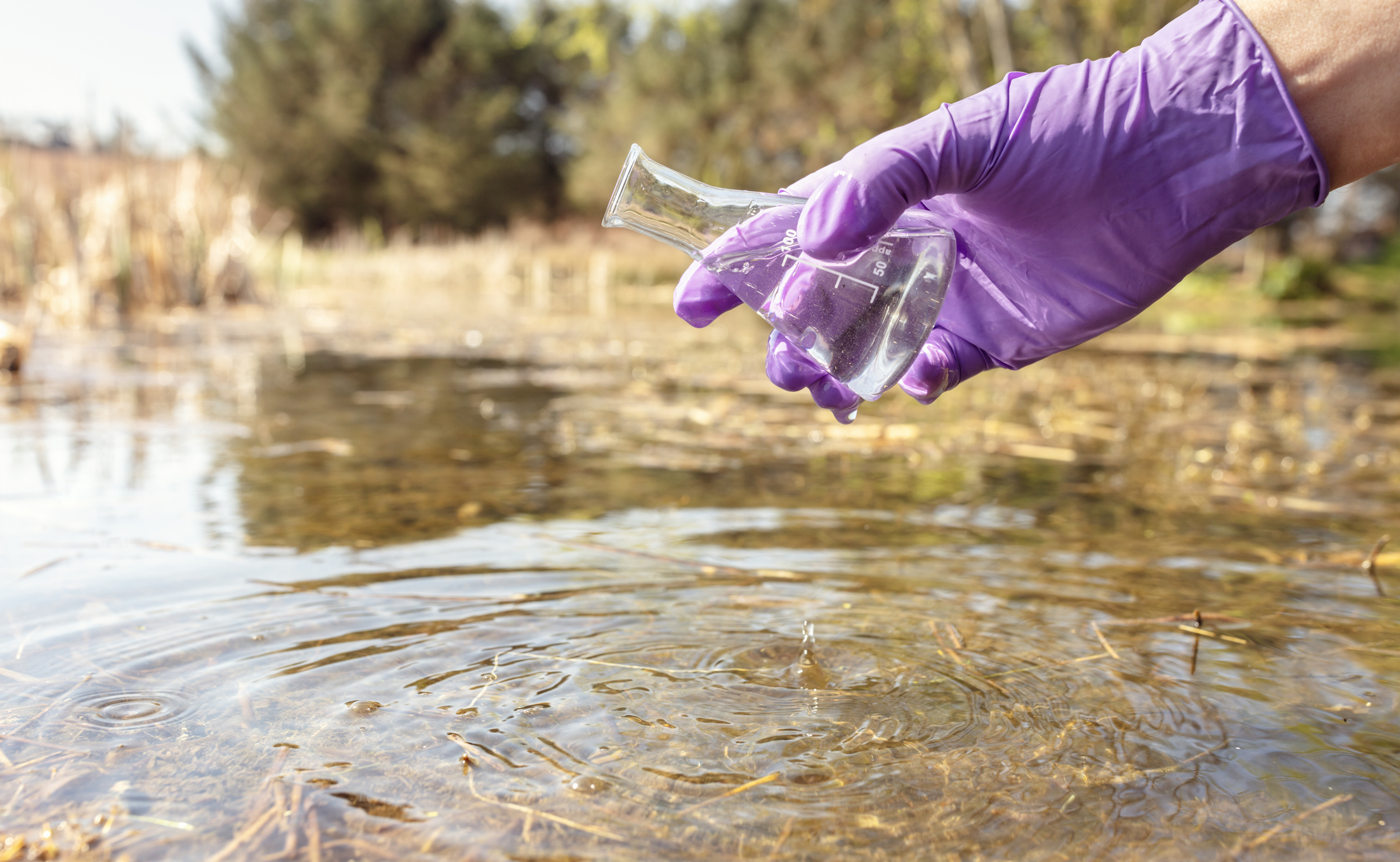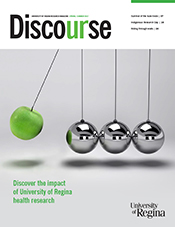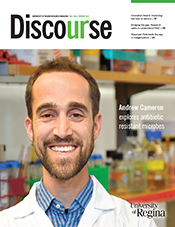Two students sampling water on Last Mountain Lake, SK, which is one of the lakes that has been sampled for the last three decades. (Photo by University Communications and Marketing)
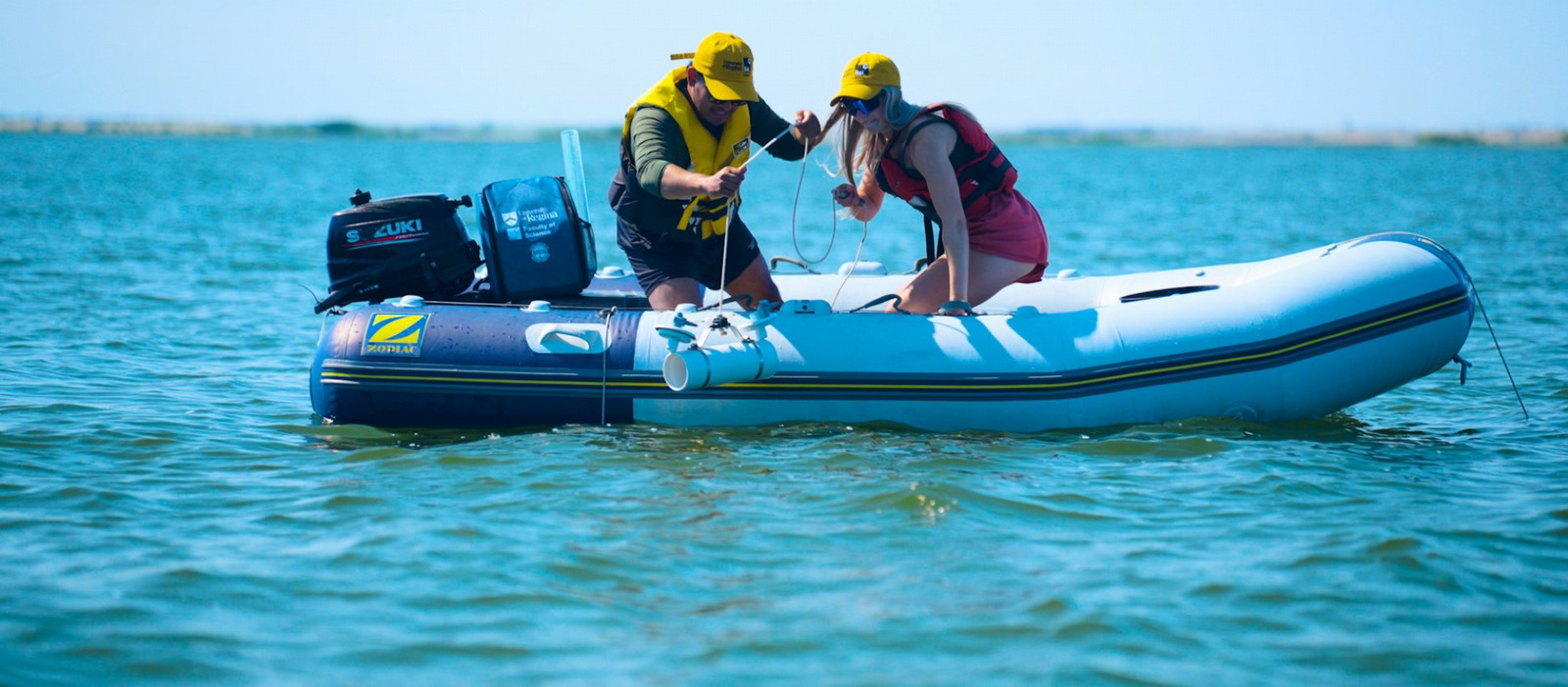
The University of Regina has received $8.6 million in federal funding to support two new Tier 1 Canada Research Chairs (CRCs) and their accompanying Canada Foundation for Innovation (CFI) infrastructure projects—investments that will advance critical work in water protection and environmental sustainability. This support also includes two CRC renewals and funding through the Research Support Fund, including an Incremental Project Grant and the Research Security Fund.
Protecting water in a changing climate
Water is under increasing pressure from population growth, land use, and climate change, all which create serious challenges for water quality across the Prairies. Issues like harmful algal blooms, rising salt levels in freshwater, and pollution from everyday products are becoming more common, threatening lakes and rivers that people, wildlife, and industries depend on.
Dr. Kerri Finlay has been awarded a Tier 1 Canada Research Chair in Water in a Changing Environment to study how human activity and climate change affect prairie waters and to find solutions for protecting them. Her seven-year, $1.4 million Canada Research Chair builds on more than 30 years of freshwater research in southern Saskatchewan to support her work tracking long-term trends, testing ways to reduce water pollution, and strengthening partnerships with First Nations and local communities to monitor and care for water resources.
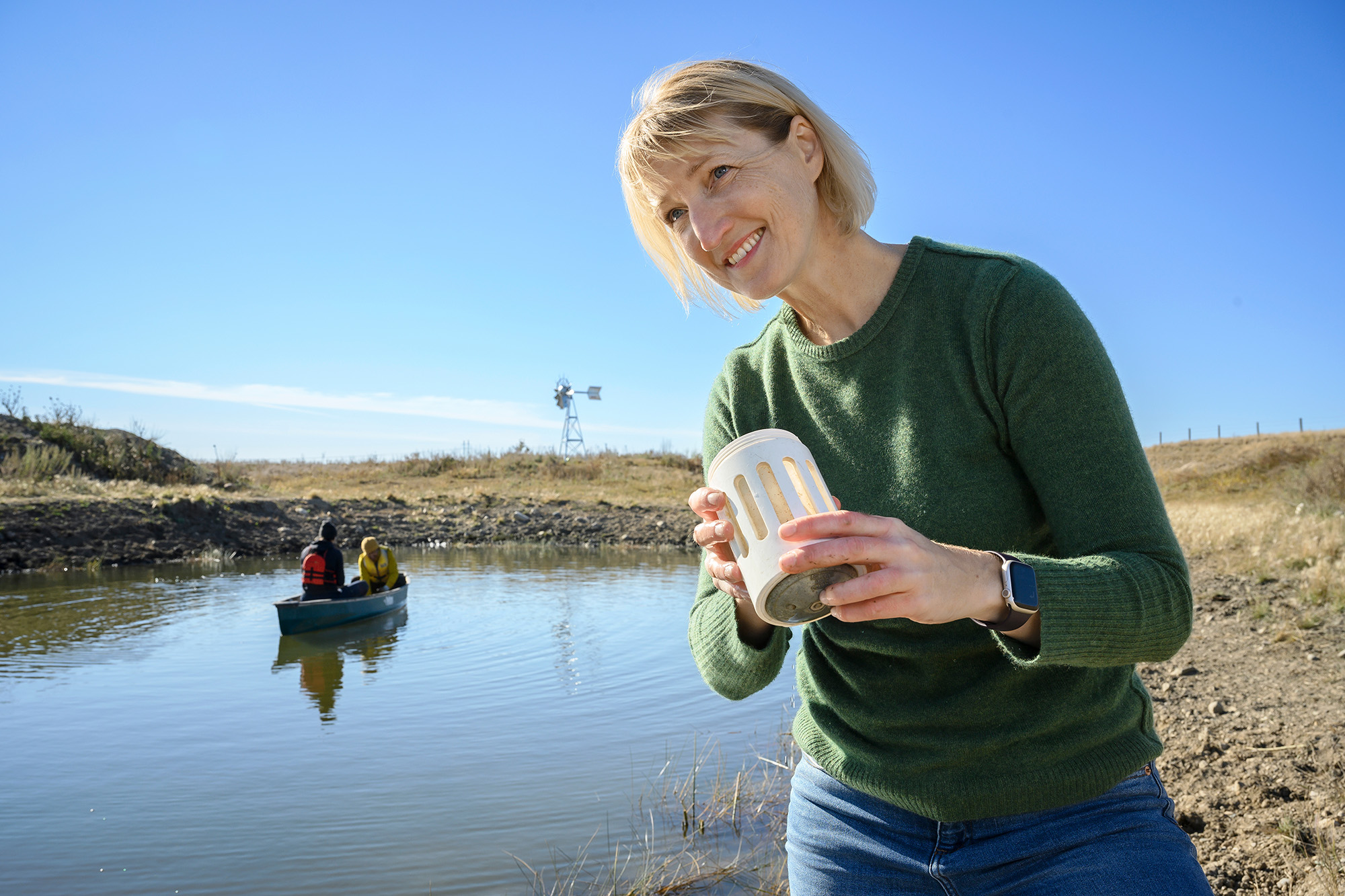
To support this research, Finlay has also received a CFI John R. Evans Leaders Fund (JELF) grant. These grants help Canada Research Chairs fund research spaces, equipment, and tools they need to carry out their work and make discoveries.
Finlay’s $170,176 CFI JELF will support a new field and laboratory setup for studying how land use and climate change influence water quality across the Prairies. The new equipment will allow for precise measurements to better understand how water moves through lakes and wetlands, especially in regions where water levels don’t always match rainfall and drought patterns. A field truck, boat, and water-quality instruments will enable sampling from more than 100 lakes across southern Saskatchewan. Together, these tools will help identify how and where to protect water in a changing climate.
“I’m excited for the opportunity provided by the Canada Research Chairs program, which will allow us to continue the legacy of strong water science and stewardship in the Prairies at the University of Regina,” says Finlay. “I look forward to further exploring the complex relationships between water, ecosystems, and communities in a changing landscape."
Creating sustainable solutions for solid waste management
As populations grow and cities expand, the amount of waste we produce continues to rise. Canada generates more solid waste per person than most industrialized countries, but recycles less. With many nations no longer accepting imported waste, Canada faces increasing pressure to find fair and sustainable ways to manage what we throw away.
Dr. Kelvin Tsun Wai Ng has been awarded a Tier 1 Canada Research Chair in Environmental Sustainability to develop smarter, data-driven waste management systems tailored to Canada’s diverse regions and climates. His seven-year, $1.4 million Canada Research Chair will focus on advanced waste management system optimization and data-driven techniques development while also providing training for students and researchers across the country, helping communities, especially in rural and northern areas, move toward a cleaner, more sustainable future.

Ng also received $83,140 from the CFI JELF to establish the Waste Management System Design Laboratory (WMSD Lab), which will combine advanced computing, near-infrared spectrometers, and training needed to improve how waste is collected, recycled, processed, and disposed of. By combining technology, research, and hands-on training, the WMSD Lab will support more efficient, ethical, and cost-effective waste management practices across the country.
“Canadians deserve a more sustainable solid waste management system,” says Ng. “The University of Regina has been a national leader in waste management research for decades, and this investment from the federal government will help us to maintain and strengthen Canada’s global leadership, helping us to develop evidence-based waste policy and train future leaders for a knowledge-based economy.”
Renewing research leadership
The federal funding also includes two Canada Research Chair renewals:
- Dr. Margot Hurlbert, Tier 1 Canada Research Chair in Climate Change, Energy and Sustainability Policy ($1.4 million over seven years)
- Dr. Omar El-Halfawy, Tier 2 Canada Research Chair in Chemogenomics and Antimicrobial Research ($500,000 over five years). He also received $205,779 from CFI-JELF for advanced antibacterial research technology
Strengthening research infrastructure and security
The University also received:
- $3.24 million through the Research Support Fund to upgrade research facilities, build resources, and strengthen cybersecurity.
- $122,826 from the Incremental Project Grant to enhance research administration and reporting.
- $95,328 in Research Security funding to help identify and manage potential security risks.
Dr. Chris Yost, Vice-President (Research), says this federal support reflects the impact the University’s research is having on a national level.
“These federal investments recognize the University of Regina’s growing strength in tackling some of the most pressing health, social, and environmental challenges of our time,” says Yost. “Our researchers are pushing the boundaries of knowledge and applying their discoveries to address societal challenges.”

